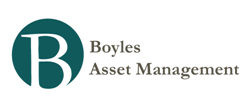Gates Foundation: 2011 Annual Letter from Bill Gates
As I sit down to work on my third annual letter, governments in every corner of the world are facing tough decisions about how to reduce spending. Although foreign aid accounts for less than 1 percent of governments’ total budgets, it is one place being considered for cuts. As a result, health and agricultural assistance that saves lives and puts poor countries on a track for self-sufficiency is at risk.
The world’s poorest will not be visiting government leaders to make their case, unlike other constituencies, so I want to help make their case by describing the progress and the potential I see in key areas of health and development. Perhaps it is ironic for someone who has been so lucky to talk about the needs of those who have not.
I believe it is in the rich world’s enlightened self-interest to continue investing in foreign aid. If societies can’t provide for people’s basic health, if they can’t feed and educate people, then their populations and problems will grow and the world will be a less stable place.
Whether you believe it a moral imperative or in the rich world’s enlightened self-interest, securing the conditions that will lead to a healthy, prosperous future for everyone is a goal I believe we all share.
Many people don’t have a clear image of the benefits aid actually provides. That’s not surprising, because aid covers many different areas. Also, in the past some aid was sent to countries to buy friendship without real regard for its impact. However, today a significant portion of foreign aid is spent on hugely beneficial programs that improve people’s lives in both the near and long term.
Despite the threat to aid budgets, one thing that makes me optimistic about the future is the courage of leaders who are finding ways to make the welfare of poor people a priority. Under David Cameron’s leadership, the United Kingdom set a great example by keeping its promise to grow aid spending despite the cuts it had to make. It is inspiring to see a leader stand up for what he believes is right, even when it isn’t easy.
- Bill And Melinda Gates' 2015 Annual Letter
Link to: 2015 Gates Annual Letter Forty years ago, Bill and his childhood friend Paul Allen bet that software and personal computers would change the way people around the world worked and played. This bet wasn't exactly a wager. It was an opportunity...
- Bill Gates: The Optimist’s Timeline
Usually, “optimism” and “realism” are used to describe two different outlooks on life. But I believe that a realistic appraisal of the human condition compels an optimistic worldview. I am particularly optimistic about the potential for technological...
- Gates Foundation: 2012 Annual Letter From Bill Gates
Throughout my careers in software and philanthropy—and in each of my annual letters—a recurring theme has been that innovation is the key to improving the world. When innovators work on urgent problems and deliver solutions to people in need, the...
- Bill Gates: Growing Enough Food To Feed The World
How can we feed a growing population in the midst of climate change and an appetite for more meat? These factors and more are straining the world’s agricultural capacity and pushing up the cost of food, which makes it difficult for the world’s poorest...
- Income Update - July 2013
Keeping track of your expenses is step one for anyone trying to improve their financial situation. After you get a better idea of what you're spending money on, then you can look for ways to save money by smarter decisions or completely stopping...

